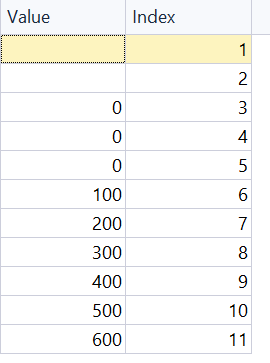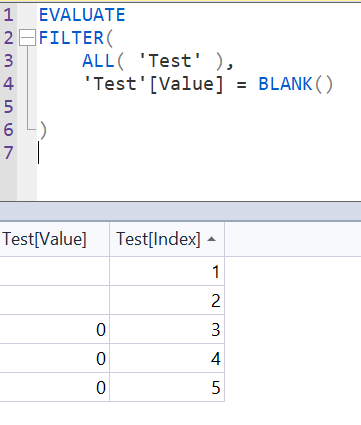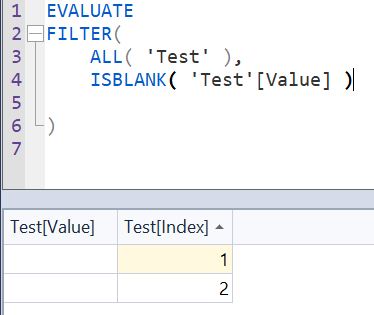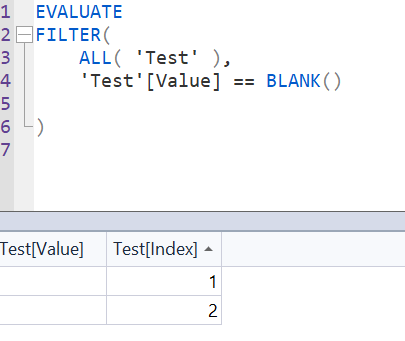All,
I was recently working with @The_Bishop on a set of complex conditional formatting measures, and ran into a situation where we were getting some very unexpected results that after substantial effort traced back to the difference in how the DAX BLANK vs. ISBLANK functions treat zeros and blank/null values. I thought I would demo the three main cases to hopefully save you the same headache if you encounter a similar scenario.
Here’s the Test data I created to illustrate the differences:

CASE 1: = BLANK()

CASE 2: ISBLANK()

CASE 3: ==BLANK

I hope you find this helpful. For a super-deep dive on how DAX handles blanks, check out:
- Brian